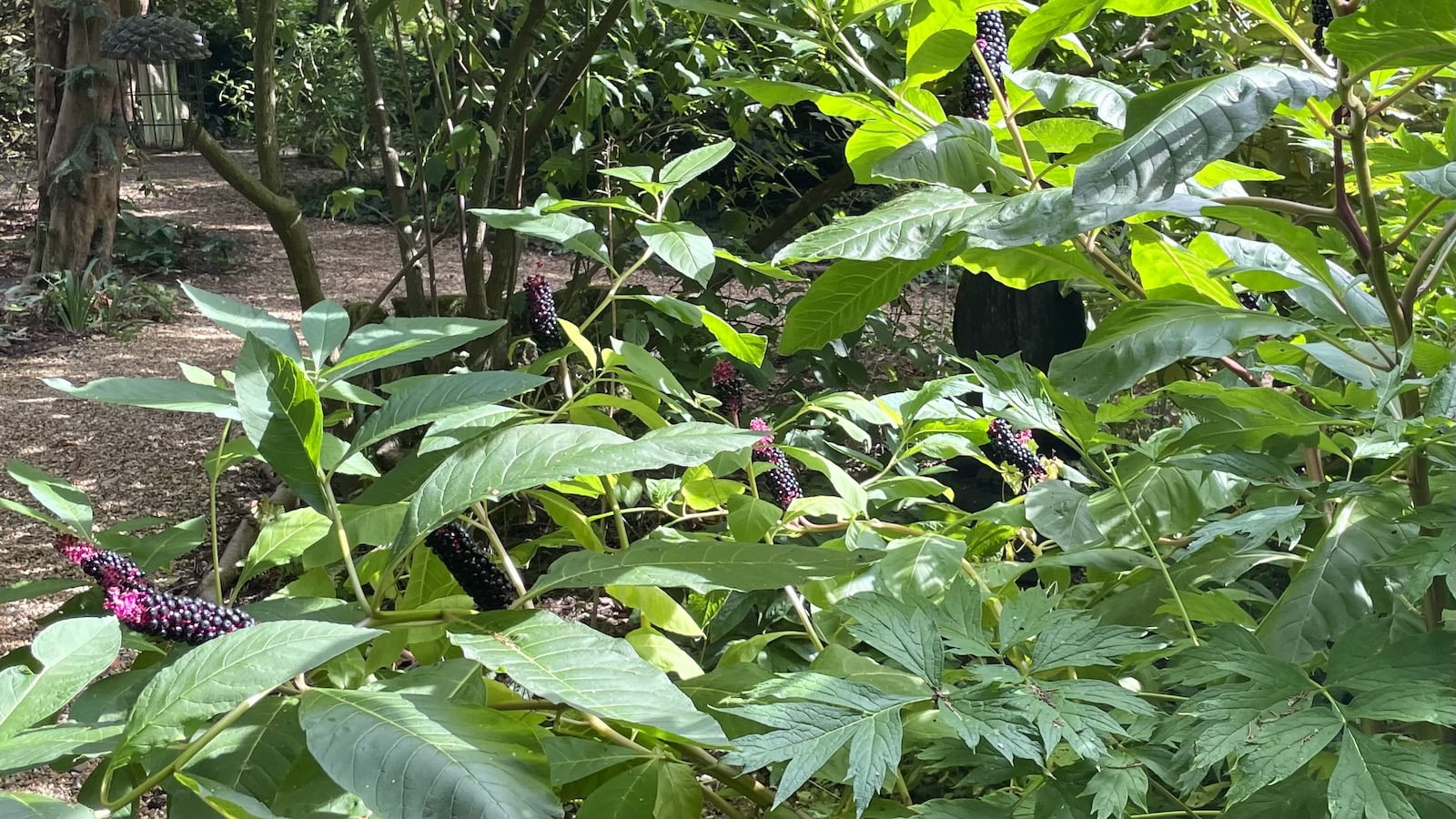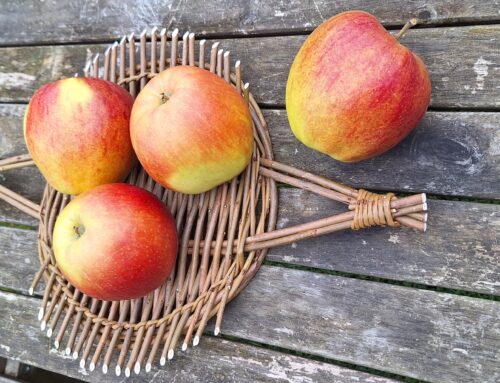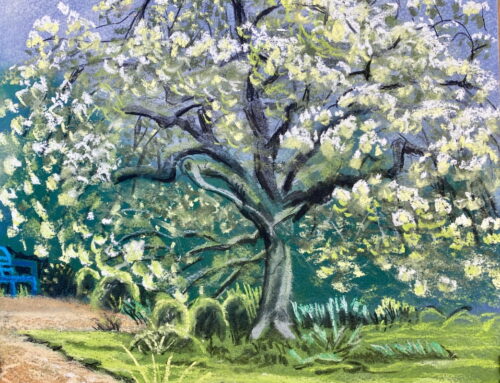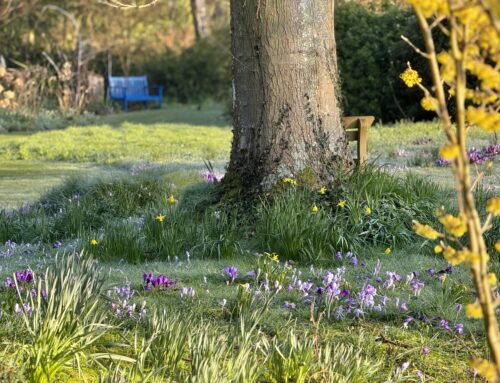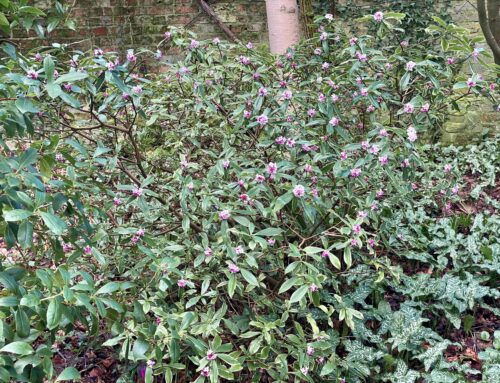John Brookes had an affinity for a North American native perennial with the unusual name of ‘pokeweed’ (Phytolacca americana) which he planted some time ago in the garden.
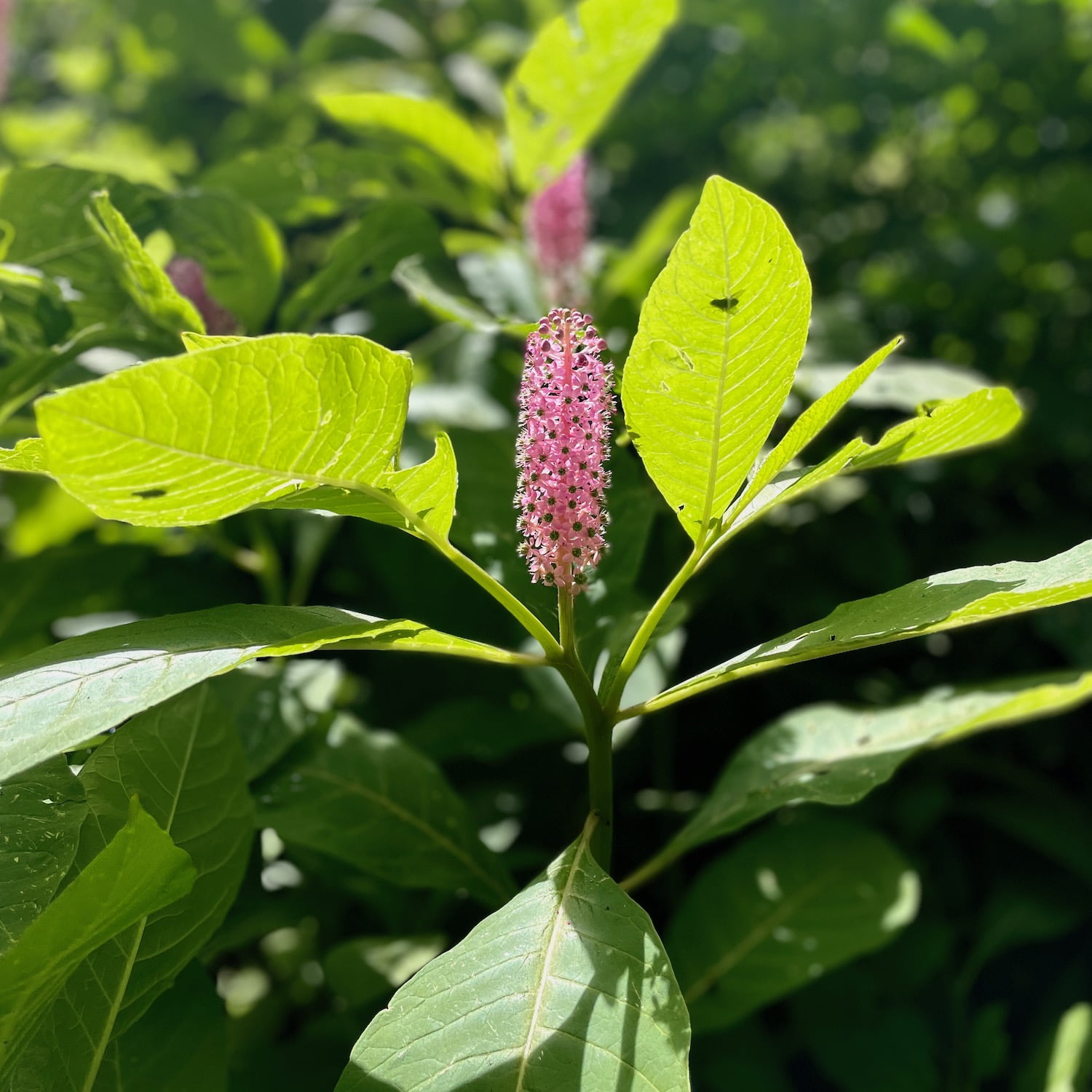 An herbaceous perennial that grows more than 4 feet high at Denmans, its long oval leaves are bright green and grow on attractive reddish-purple stems. Its real attraction, however, are the spikes of white or light pink flowers that appear in early summer and yield to spring green berries which turn dark blue-black in late summer and early autumn.
An herbaceous perennial that grows more than 4 feet high at Denmans, its long oval leaves are bright green and grow on attractive reddish-purple stems. Its real attraction, however, are the spikes of white or light pink flowers that appear in early summer and yield to spring green berries which turn dark blue-black in late summer and early autumn.
At one time, these berries were used to make ink, hence one of its common names is inkberry. The name ‘poke’, on the other hand, comes from its Algonquin Indian names: Puccoon, pocan, or pougkon, and in the Southern United States, the plant is commonly known as poke berry or poke sallet, a play on the word ‘salad’.
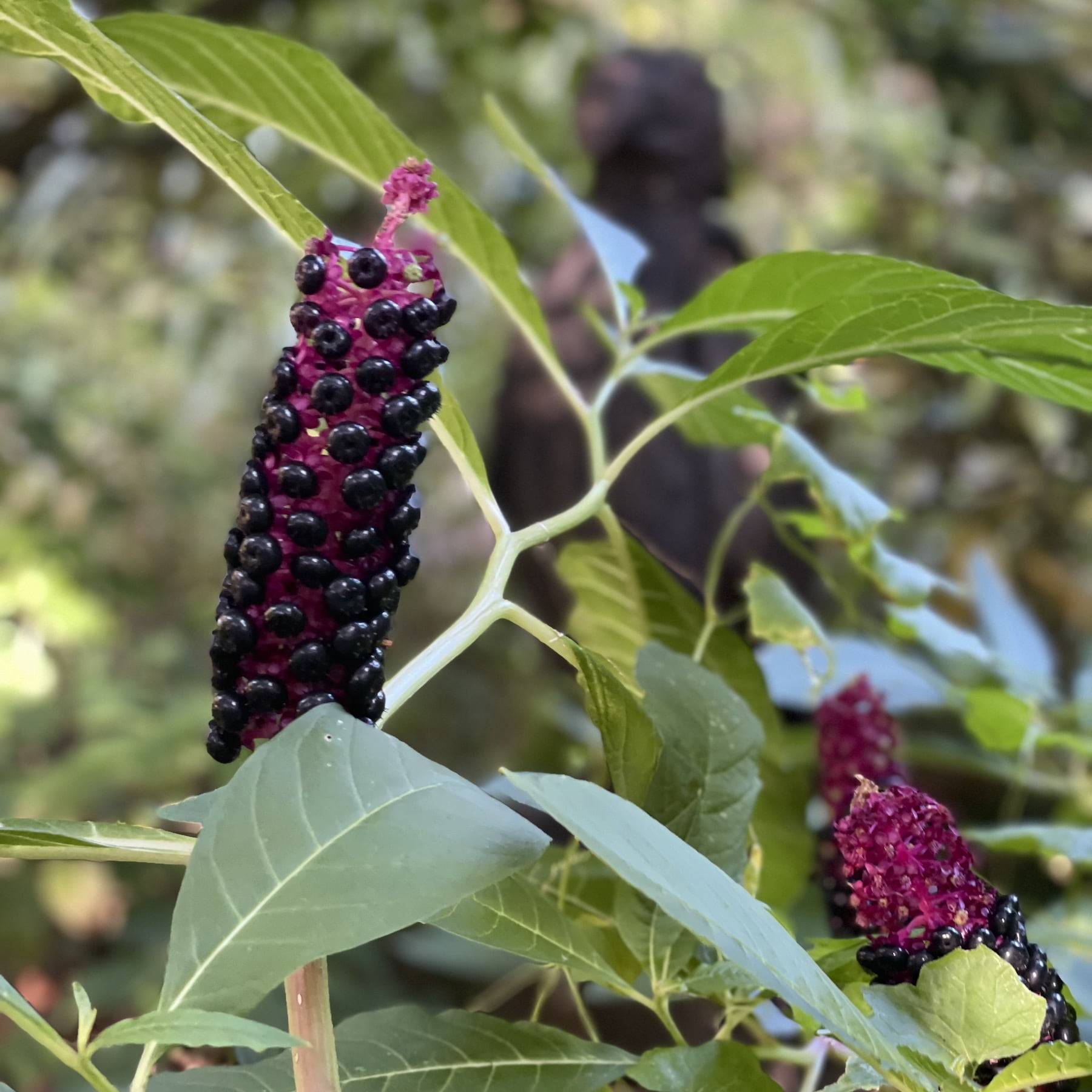 This is somewhat surprising because the plant is largely toxic (apparently one of its homeopathic uses is as an emetic), but apparently its young leaves can be eaten if boiled sufficiently to dispel the toxins and then cooked with bacon fat and eggs. Don’t take my word for this!
This is somewhat surprising because the plant is largely toxic (apparently one of its homeopathic uses is as an emetic), but apparently its young leaves can be eaten if boiled sufficiently to dispel the toxins and then cooked with bacon fat and eggs. Don’t take my word for this!
And curiously, this leads us to Elvis Presley. Elvis released his version of the song, “Polk Salad Annie”, written by a Louisiana musician (Tony Joe White whose own version became a top ten hit in 1968) in 1970. The song tells the story of an impoverished young Southern woman who collects poke leaves to feed to her family. You can listen to it here on YouTube.
We don’t know where John first saw or when he first planted pokeweed here at Denmans (or if he ever heard Elvis sing ‘Polk Salad Annie’) but it grows very well for us in the new woodland part of the Nut Walk that we opened to the public last autumn. In clearing this area out over the past several years, the pokeweed has had much more sunlight and has flourished, now self-seeding elsewhere in the garden. It seems to like our relatively alkaline, well-drained soils and though it prefers consistently moist soil but will tolerate short periods of drought.

